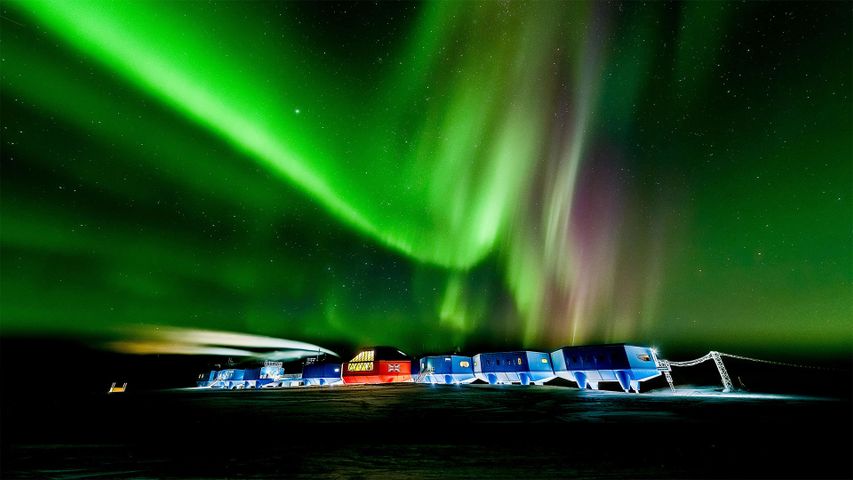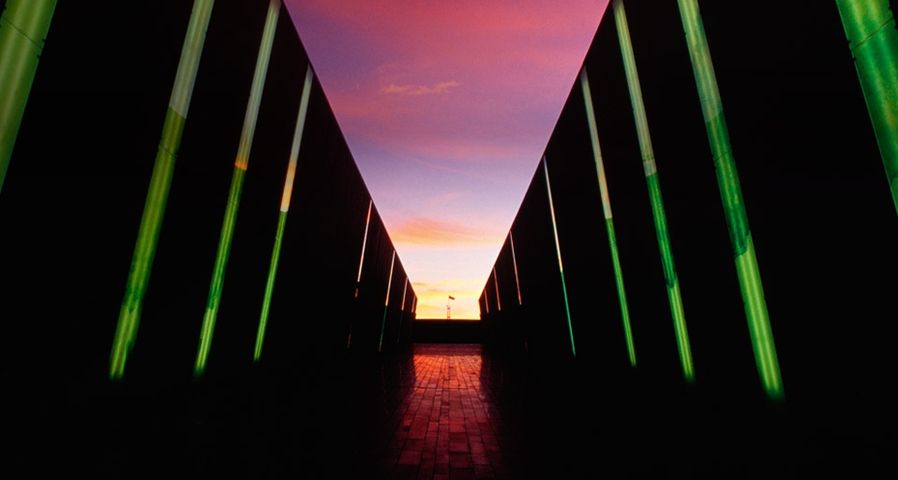Aurora Australis over the Halley VI Research Station in Antarctica
© Stuart Holroyd/Alam
Southern lights for Antarctica Day
In honour of Antarctica Day, you're seeing the southern lights dazzle above Halley VI, the latest version of the six-decade-old Halley Research Station in the British Antarctic Territory. The modular building stands on hydraulic legs and is movable via retractable skis. The five previous facilities, Halley I–V, were each compromised by Antarctica's harsh climate and were decommissioned. Since 2017, while scientists monitor dangerous cracks in the surrounding Brunt Ice Shelf, Halley has been unmanned during the dark Antarctic winter months—but the research team equipped it with an autonomous micro-turbine that keeps its atmospheric instruments ticking as the snowdrifts pile up.
The first Antarctica Day was Dec. 1, 1959, when twelve nations peacefully agreed to dedicate Earth's southernmost continent to the pursuit of science by signing the Antarctic Treaty. That agreement, adopted by both the U.S. and the U.S.S.R. amid the accelerating Cold War, stands 60 years later as an important landmark in global relations and has expanded to include 54 countries.
Related Images
Bing Today Images





 'Feelings are Facts,' by artist Olafur Eliasson and architect Ma Yansong, Beijing, China
'Feelings are Facts,' by artist Olafur Eliasson and architect Ma Yansong, Beijing, China
 The Giant Wheel ride at the Canadian National Exhibition (CNE), Toronto
The Giant Wheel ride at the Canadian National Exhibition (CNE), Toronto
 Grass of lakeside sedge meadow, Moose Lake, Minnesota
Grass of lakeside sedge meadow, Moose Lake, Minnesota
 Ferns in the Oregon side of the Columbia River Gorge
Ferns in the Oregon side of the Columbia River Gorge
 Inside the Bund Sightseeing Tunnel under the Huangpu River in Shanghai, China
Inside the Bund Sightseeing Tunnel under the Huangpu River in Shanghai, China
 Aurora australis over the South Indian Ocean
Aurora australis over the South Indian Ocean
 Commonwealth Place in Canberra, Australia
Commonwealth Place in Canberra, Australia
